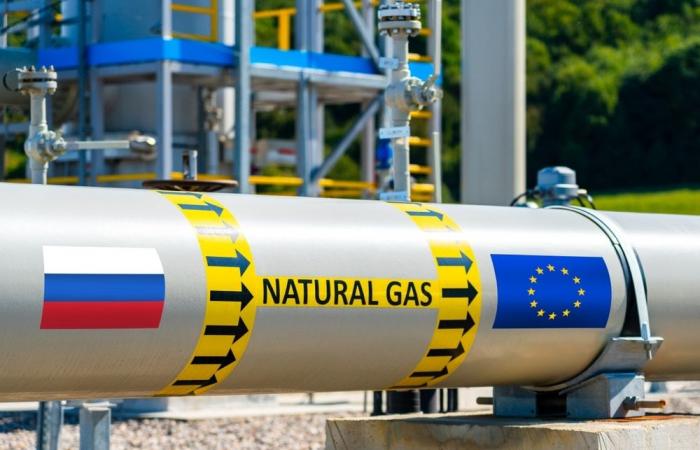Europe has witnessed a historic turning point: the definitive cessation of the transit of Russian gas via Ukraine. This decision, announced by kyiv, marks the end of a five-year contract signed in 2019 between Ukraine and Russia, which allowed Moscow to export its gas to Europe. The issue is strategic: for Ukraine, it is about cutting economic ties with a hostile neighbor. For Russia, this is a major loss of access to European markets. As for the European Union, it is facing a new shock in an energy context that is already fragile since the start of the war in Ukraine in 2022.
Europe facing an energy crisis
The cessation of transit via Ukraine is disrupting European energy supplies. Russia, which still supplied 45 % of the European Union's natural gas before the war in 2022, only represents 18 % imports in 2024. However, some countries remain vulnerable, notably Slovakia and Hungary, which are largely dependent on Russian gas..
Robert FicoSlovak Prime Minister, warned of “drastic impacts” of this judgment throughout the EU. For its part, Hungary, supplied via the gas pipeline TurkStreamseems spared but is worried about possible price increases.
| Pays | Main sources of gas | Impact of the shutdown |
|---|---|---|
| Slovakia | Transit Ukrainian, Gazprom | Critique |
| Hungary | TurkStream | Moderate |
| Moldova | Russian imports via Transnistria | Severe, state of emergency declared |
The EU, for its part, claims to have diversified its supplies with increased imports of LNG (liquefied natural gas) from the United States and Qatar. However, these alternatives remain costly and insufficient to fully compensate the needs of Member States.
Ukraine and Russia: between symbolic gains and economic losses
For Ukraine, this decision puts an end to an important source of income. In 2023, kyiv had received almost 800 million euros for the transit of 14.65 billion m³ gas. However, this strategic choice aims to weaken Russia economically. “Financing this transit amounted to financing the war against our country”explained Emmanuelle Chazecorrespondent in Ukraine.
For its part, Russia is losing an essential channel to reach European markets. In response, Moscow relied on alternative routes such as TurkStream and LNG exports. However, Gazprom's revenues have declined significantly, worsening an economic crisis already marked by Western sanctions.
A critical situation for Moldova
The cessation of transit seriously affects the Moldovawhich largely depended on deliveries via Transnistria. This pro-Russian region faces a gas shortage, threatening thousands of homes. The Moldovan government declared a state of emergency, while schools and nurseries were deprived of heating. “The Kremlin is once again using energy blackmail to weaken our European trajectory”denounced the Moldovan president, Maia Sandu.
This crisis highlights the fragility of European energy systems. Indeed, how can the EU accelerate its transition to renewable energy sources while guaranteeing the energy security of its citizens? What will be the impacts on geopolitical relations with Moscow and neighboring countries? These questions will remain at the heart of debates in the years to come.
A reaction? Leave a comment
Did you like this article? Subscribe to our free Newsletter for engaging articles, exclusive content and the latest news.






